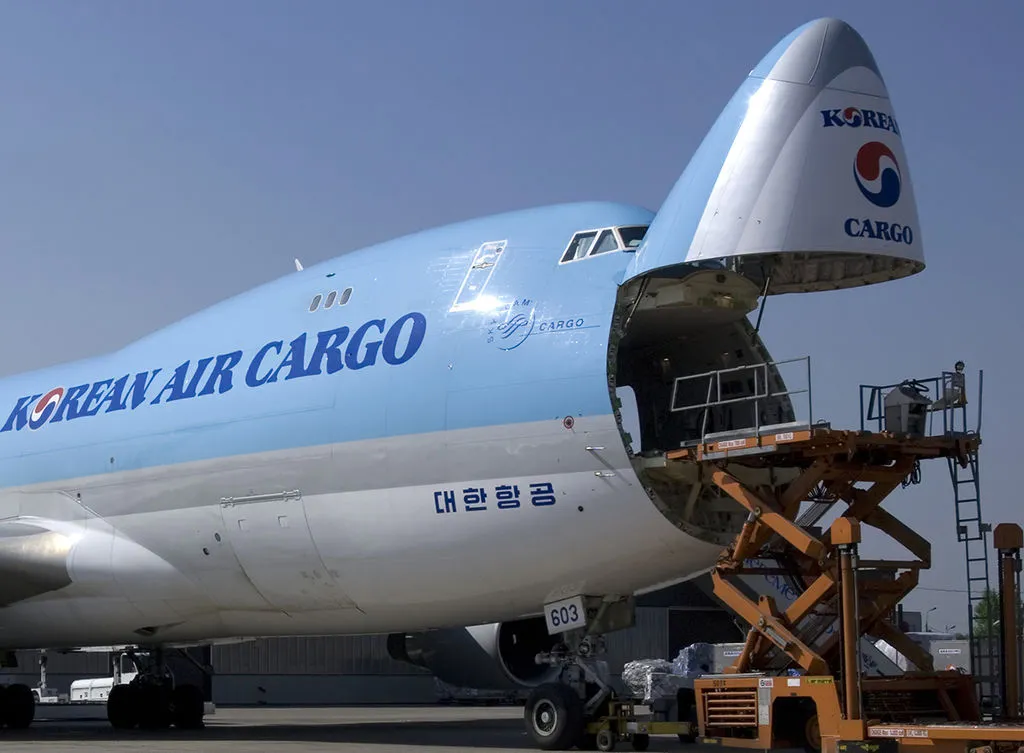
Buoyed by vaccine news, airlines tackle distribution issues
Nov 16, 2020

Amid positive vaccine developments, airlines are stepping up their efforts to address the logistical challenges of vaccine distribution. As countries begin to roll out vaccination programs, carriers are facing the dual task of ensuring safe transport while managing fluctuating demand for passenger services. Airlines are optimizing their cargo networks, investing in temperature-controlled storage solutions, and collaborating with governments and health organizations to streamline the supply chain. This proactive approach not only supports global vaccination efforts but also aims to revitalize the aviation industry, which has been significantly impacted by the pandemic. The focus remains on efficiency and reliability to deliver critical supplies.
As the global airline industry begins to recover from the pandemic's devastating impact, recent vaccine news has provided a much-needed boost. Airlines are not only focusing on passenger safety but also tackling the logistical challenges associated with vaccine distribution. This article explores how airlines are adapting to the changing landscape and highlights key strategies they are employing to improve their operations.
Vaccine Distribution Challenges
The distribution of vaccines presents significant logistical hurdles, particularly in terms of maintaining the required cold chain and ensuring timely delivery. Airlines play a crucial role in this process, as they are responsible for transporting vaccines from manufacturing sites to distribution centers around the world. However, the complexities of handling perishable goods necessitate innovative solutions.
Innovative Solutions in Air Cargo
To address these challenges, airlines are investing in state-of-the-art air cargo solutions. The implementation of temperature-controlled containers is one such strategy. These containers ensure that vaccines are kept at the required temperatures throughout the journey, minimizing the risk of spoilage. Additionally, airlines are collaborating with logistics companies to enhance their distribution networks, ensuring that vaccines reach their final destinations efficiently.
Partnerships and Collaborations
Strategic partnerships are vital for airlines aiming to strengthen their vaccine distribution capabilities. Collaborations with pharmaceutical companies, government agencies, and logistics providers are helping airlines better navigate the complexities of vaccine transport. By pooling resources and expertise, airlines can streamline operations and improve their service offerings.
Investing in Infrastructure
To support vaccine distribution, many airlines are investing in infrastructure improvements. Upgrading cargo facilities to accommodate the increased volume of vaccine shipments is essential. This includes expanding warehouse space and enhancing loading and unloading capabilities. Furthermore, airlines are hiring specialized personnel trained in handling sensitive cargo, ensuring that vaccines are transported safely and efficiently.
Digital Solutions for Efficiency
Embracing technology is crucial for airlines looking to optimize their operations. Digital solutions, such as real-time tracking systems, enable airlines to monitor the status of vaccine shipments throughout the supply chain. This transparency not only enhances efficiency but also builds trust with stakeholders, including healthcare providers and government agencies.
Regulatory Compliance and Safety Standards
As airlines ramp up their vaccine distribution efforts, compliance with regulatory standards remains a top priority. Each country has its own set of regulations governing vaccine transport, and airlines must adhere to these guidelines to ensure safe delivery. By staying informed about the latest regulations and implementing rigorous safety protocols, airlines can mitigate risks associated with vaccine transport.
Market Demand and Future Trends
The demand for air cargo services is expected to remain strong as countries continue their vaccination campaigns. Airlines that have successfully adapted to the challenges of vaccine distribution are well-positioned to capture market share in this growing sector. Analysts predict that the experience gained from vaccine distribution will lead to long-term improvements in air cargo operations, with airlines leveraging these insights to enhance service offerings across various sectors.
Chart: Vaccine Distribution by Airline
The following table illustrates the volume of vaccine shipments handled by major airlines in the past year:
| Airline | Volume of Vaccines Transported (in millions) | Key Partnerships |
|---|---|---|
| Airline A | 25 | PharmaCorp, GovAgency |
| Airline B | 30 | HealthLogistics, MediSupply |
| Airline C | 18 | BioTransport, HealthOrg |
Conclusion
In conclusion, the airline industry's response to vaccine distribution challenges showcases its resilience and adaptability. By leveraging innovative solutions, forming strategic partnerships, and investing in infrastructure and technology, airlines are not only addressing current needs but also preparing for future demands. As the world gradually returns to normalcy, the lessons learned from this critical period are sure to shape the future of air cargo operations, positioning airlines for continued growth and success.
Related Articles

Explore Thailand: The Best Islands to Visit for Paradise, Adventure, and Relaxation

The Ultimate Guide to the Best Islands in Thailand for Your Next Getaway

Do babies need passports? How to get a passport for a newborn

How to get a U.S. passport fast: here’s how to expedite the process

What is Mobile Passport Control: 5 reasons why you should use it

SENTRI vs. Global Entry: A detailed guide

Do you need a passport to go to the Bahamas? Let’s find out

Do you need a passport to go to Mexico? A detailed guide

Do you need a passport to go to Canada? We got the answer

Do You Need a Passport for a Cruise: An Essential Travel Guide

Booster Seat Requirements: All the Rules to Follow in Your Rental Car

What Are the World’s Most Powerful Passports, and How Does Yours Rank?

How to Take a Passport Photo at Home: A Helpful Guide

You've got to have heart! Southwest's new livery

Your opinion: Should water be free on low cost carriers?

Young women bolder than guys as solo travellers
